Central America
Nicaragua opposition leader Chamorro sentenced to 8 years in prison: NGO
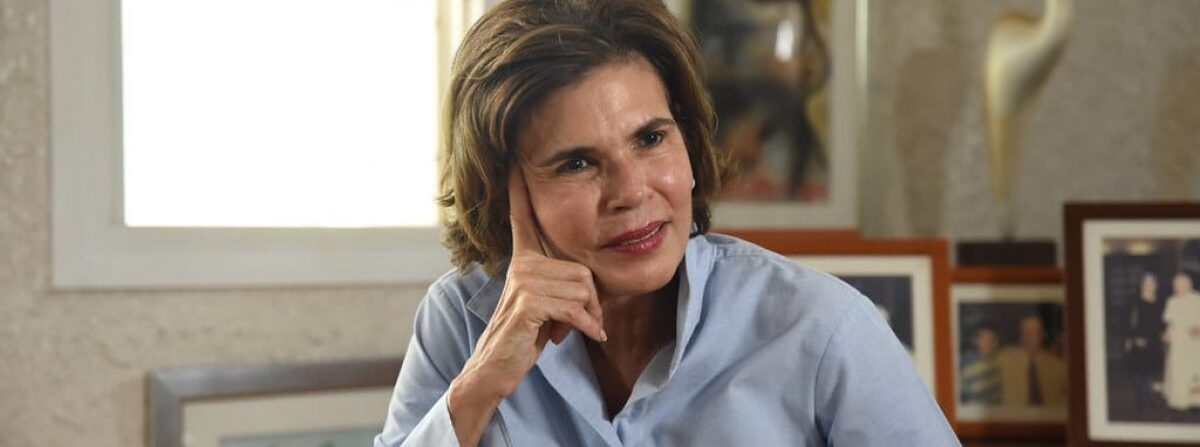
AFP
Nicaragua’s main opposition figure and would-be presidential challenger to Daniel Ortega was sentenced Monday to eight years in prison after being found guilty of financial crimes, a human rights group said.
Cristiana Chamorro, 68, will remain under house arrest, as she has been since she was detained in June, according to the Nicaraguan Center for Human Rights (CENIDH).
The charges brought by President Ortega’s government had prevented her from running in the November presidential election in which she was regarded as the favorite.
Chamorro was accused by the state of laundering money, property and assets through her media foundation as well as promoting “ideological falsehood” and destabilizing the government.
Chamorro’s brother Pedro Joaquin Chamorro and two former employees of her free speech foundation, as well as her driver, were also convicted by a court last week.
Pedro Joaquin Chamorro was sentenced to nine years in prison and is being held at the Judicial Assistance Directorate (DAJ) of the police.
The three others also received sentences of up to 13 years.
CENIDH said Cristiana Chamorro and the others were also slapped with “million-dollar fines” that are “impossible to pay, and if they are commuted, it would be the equivalent to life imprisonment.”
Chamorro has denied the charges against her and said they were only brought to block her from running against Ortega, the 76-year-old former guerrilla who has governed since 2007 and who won a fourth consecutive term in November.
“They want to stain my name, but they will not succeed,” she told the court at the end of the trial, according to 100% News, an online media outlet critical of the government. “They will never succeed in staining the name of my father or my mother, because I am innocent.”
A journalist not aligned with any political party, Chamorro is one of seven former presidential candidates and nearly 40 opposition figures arrested last year in the run-up to the November 7 election.
She is the daughter of former president Violeta Barrios de Chamorro, who defeated Ortega at the polls in 1990, and of journalist Pedro Joaquin Chamorro, was shot dead in Managua in 1978 for opposing the Somoza dictatorship, which ruled Nicaragua for nearly half a century until the victory of Ortega’s Sandinista National Liberation Front (FSLN) in 1979.
During Chamorro’s seven-day, closed-door trial, the government alleged financial crimes were committed through the Violeta Barrios de Chamorro Foundation, a press freedom training and defense center that Chamorro directed for 20 years and which has since been shuttered.
The state said the foundation was used to receive money from abroad to go towards destabilizing the government of Ortega and his vice-president and wife Rosario Murillo.
Central America
Guatemala’s Attorney General Consuelo Porras Loses Bid for Constitutional Court Seat

Guatemala’s attorney general, Consuelo Porras, who has been sanctioned by the United States over corruption allegations, lost a key vote on Monday in which a public university selected two of the 10 magistrates for the country’s highest constitutional court. However, she could still seek a seat through another nominating body.
The election of five full magistrates and five alternates to the Corte de Constitucionalidad (CC) is taking place gradually over more than two months and is considered crucial in the ongoing struggle for control of Guatemala’s judiciary, which critics say has long been influenced by a political and economic elite accused of corruption.
According to results announced at a press conference, the governing council of the Universidad de San Carlos de Guatemala (USAC) rejected Porras, who had applied as either a full or alternate magistrate, and instead chose two candidates aligned with the university rector. The vote was held at a hotel in Antigua, about 35 kilometers from the capital.
Despite the setback, Porras — whose term as attorney general ends on May 16 — could still be nominated to the Constitutional Court by the Corte Suprema de Justicia, which appoints two magistrates. The remaining six are selected by the president, the bar association and Congress.
“It’s always a possibility,” the 72-year-old lawyer said days earlier when asked by reporters whether she would seek nomination through another institution if she lost the USAC vote.
Porras has been sanctioned by Washington and the European Union for allegedly attempting two years ago to block the inauguration of President Bernardo Arévalo and for pursuing legal actions against anti-corruption prosecutors, judges, journalists and social leaders since taking office in 2018.
The USAC vote was controversial because most members of the university’s governing council are serving beyond the expiration of their terms. Students, academics and social activists staged protests against Porras’ candidacy.
Central America
Teens visit ETESAL substation to learn about responsible energy use

Within the framework of World Energy Day, teenagers from the institutional care center Ciudad Niñez y Adolescencia (CNA), run by the Consejo Nacional de la Primera Infancia, Niñez y Adolescencia (Conapina), took part in an educational visit to a substation operated by Empresa Transmisora de El Salvador (ETESAL) in Santa Ana.
The aim of the activity was to give participants first-hand knowledge of how the country’s electricity transmission system works and to highlight the importance of responsible energy use.
During the tour, the group learned about the process that delivers electricity to homes, businesses, and industries. They were also introduced to specialized technical equipment and the safety measures required to ensure an efficient and reliable service.
Before the guided visit, the teenagers attended two informative talks and an environmental awareness session focused on the relevance of responsible energy consumption and its impact on the environment.
According to Nelson Menjívar, head of Conapina’s programs unit, the initiative serves a dual purpose. “It has two objectives: a recreational component and an educational one, so that adolescents can learn about the work carried out by ETESAL and how some of the resources they use at home are generated. This is in keeping with the guarantees established under the Crecer Juntos law; we ensure those rights for children,” he said.
Menjívar stressed that these activities help young people better understand how essential services function in their daily lives while promoting efficient consumption habits and a culture of environmental respect and care.
The event is part of the principle of shared responsibility set out in the Crecer Juntos law, promoted by the administration of Nayib Bukele, which states that families, society, private companies, and the State must work together to safeguard the comprehensive well-being of children and adolescents.
Central America
Guatemala’s president denounces MP raids during Constitutional Court election
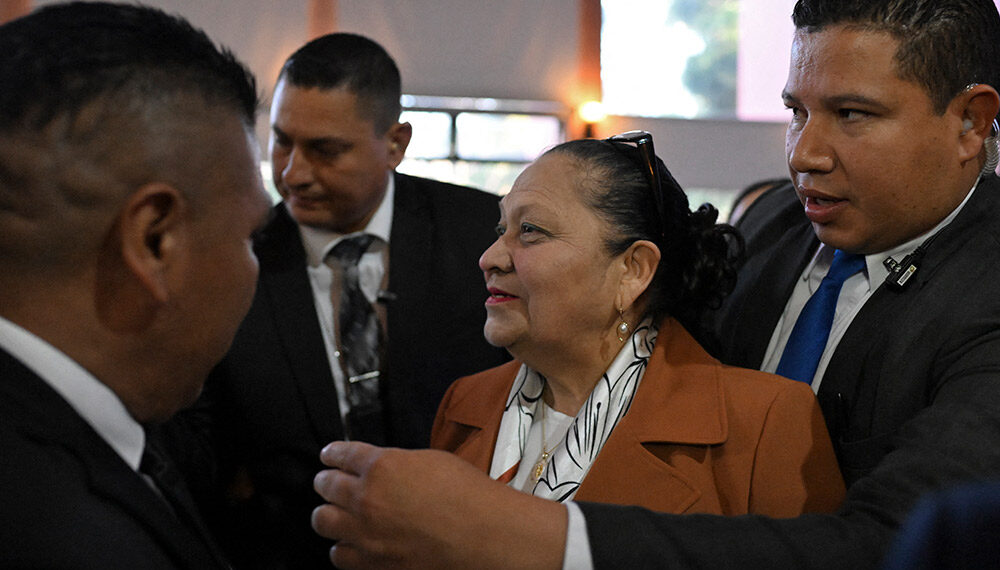
The president of Guatemala, Bernardo Arévalo, on Thursday accused the Ministerio Público (MP) of interfering in the process to select magistrates for the country’s highest court, the Corte de Constitucionalidad (CC).
Arévalo has been locked in an ongoing dispute with Attorney General Consuelo Porras, who has been sanctioned by the United States and the European Union and labeled by critics as “corrupt” and “anti-democratic” after efforts to block the president from taking office two years ago.
Earlier on Thursday, the MP said it was investigating alleged irregularities in the voting process and carried out raids at polling sites set up at Club La Aurora and Parque Erick Barrondo, in Guatemala City, where the Colegio de Abogados y Notarios de Guatemala (CANG) was electing its principal and alternate representatives to the CC.
In posts on X, the president described the operation as a “spurious” action aimed at “interfering” in the election and “intimidating” voters in order to “alter” the outcome.
Voting was temporarily disrupted by the searches, the frisking of the CANG president, and a power outage caused by the explosion of a nearby transformer. Once the process resumed and concluded, the association elected Astrid Jeannette Lemus Rodríguez as one of the five members of the Constitutional Court, with Luis Fernando Bermejo Quiñónez chosen as her alternate.
“They failed in their attempt to hijack the elections (…). Honest lawyers won,” Arévalo wrote in a subsequent message.
-

 Central America3 days ago
Central America3 days agoGuatemala’s president denounces MP raids during Constitutional Court election
-
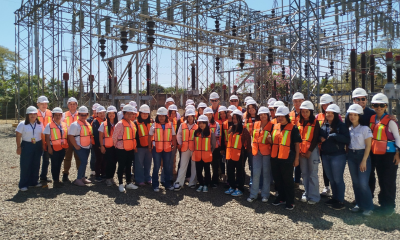
 Central America3 days ago
Central America3 days agoTeens visit ETESAL substation to learn about responsible energy use
-
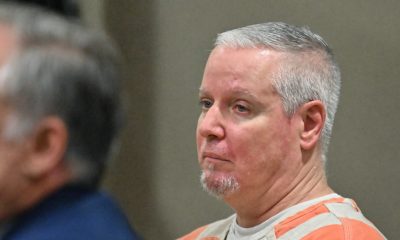
 International15 hours ago
International15 hours agoFather Faces Murder Charges in Georgia School Shooting Case
-

 International15 hours ago
International15 hours agoSpanish Government Targets ‘Big Tech Impunity’ in AI Image Scandal
-
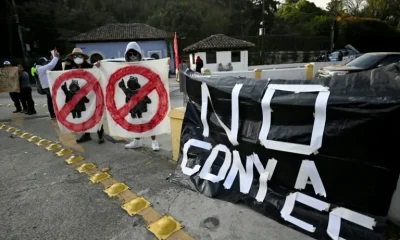
 Central America1 day ago
Central America1 day agoGuatemala’s Attorney General Consuelo Porras Loses Bid for Constitutional Court Seat


























